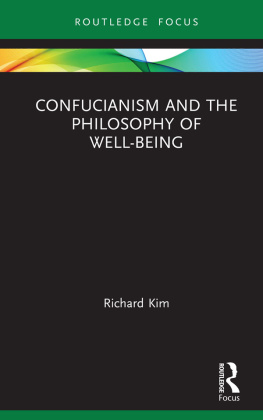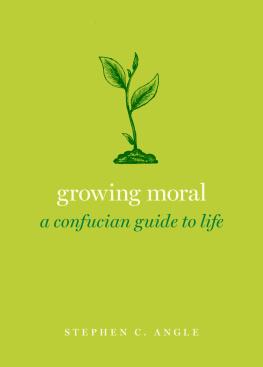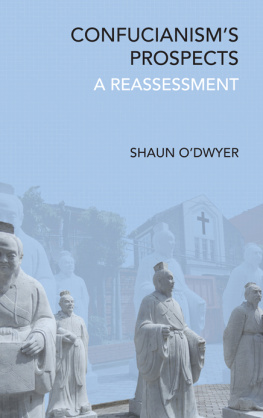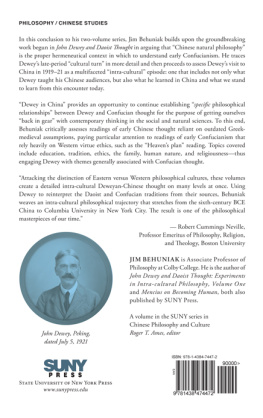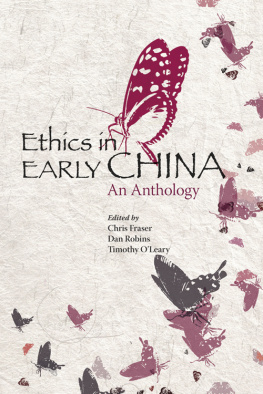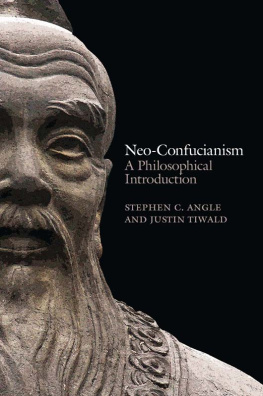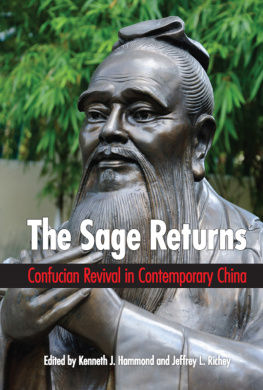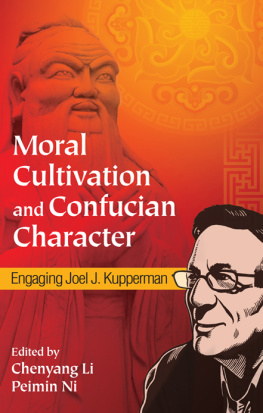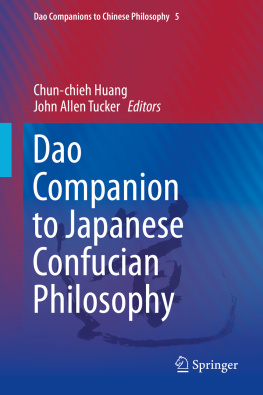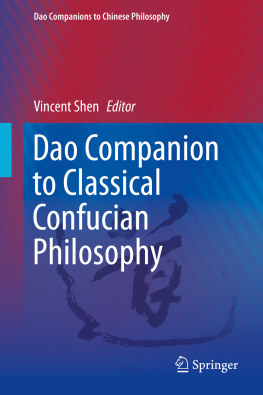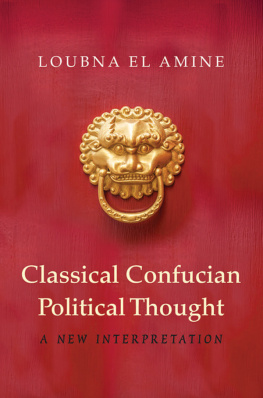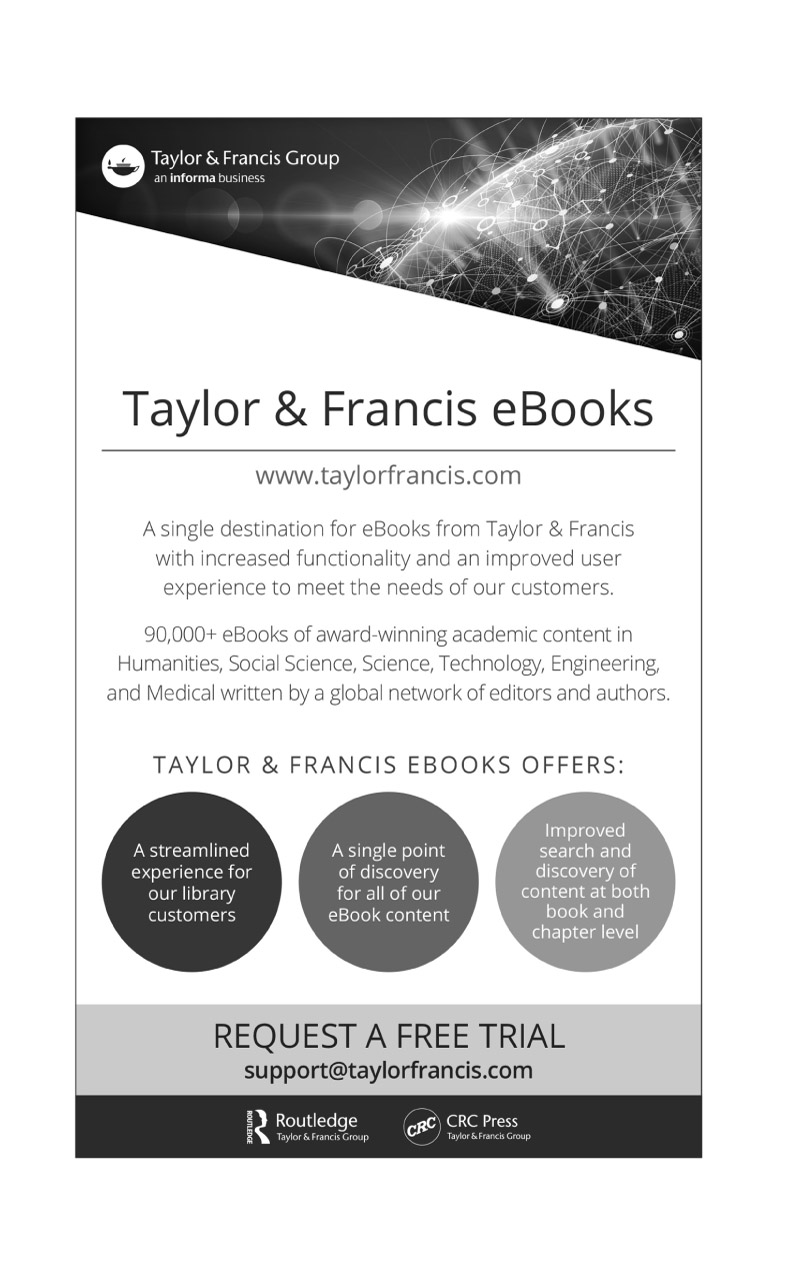Despite its relatively small size, this book took many years to complete. My study of contemporary theories of well-being began while working on my dissertation. Accordingly, I should begin by thanking my wonderful advisor, David Solomon. He was an exemplary advisor: generous, kind, and broad-minded, with a keen eye for spotting what is (and isnt) deep or interesting.
The trajectory of my research was, to my great benefit, reshaped when I took up a postdoctoral research fellowship at the City University of Hong Kong to work with the great PJ Ivanhoe on Korean and comparative philosophy. During these years I studied early Confucianism and Korean Neo-Confucianism, learning much from the wisdom of PJ, who taught me so much of what I know of East Asian philosophy. I am greatly in his debt. I also had the great fortune of meeting many terrific scholars during this period, including Sungmoon Kim, Ruiping Fan, Eirik Harris, Owen Flanagan, Youngsun Back, Hsin-wen Lee, and Wenqing Zhao. I am grateful to all of them for both friendship and intellectual nourishment.
I also met a number of terrific philosophers during my time as a postdoctoral fellow at Saint Louis University for the Happiness and Well-Being Project directed by Dan Haybron, including Jason Chen, Jonathan Reibsamen, and Matt Shea. I owe the greatest debt to Dan, whose outstanding work on happiness and well-being continues to inspire me. He is also one of the kindest, most considerate people I have ever met.
For discussion and written comments for this book, I must thank Steve Angle, Youngsun Back, Anne Baril, Tom Carson, Tim Connolly, Eirik Harris, Dan Haybron, PJ Ivanhoe, Micah Lott, Hui-chieh Loy, Fr. James Dominic Rooney, OP, Justin Tiwald, and Xueying Wang. Their comments saved me from many blunders and dramatically improved the quality of this book. I am truly grateful to all of them. A special thanks also goes to Gina Lebkuecher, who also offered substantive comments and also did excellent work in editing the manuscript.
I am also very grateful to both Adam Johnson and Tony Bruce at Rout-ledge, who displayed great patience as I took many more years to complete this book than I had anticipated.
While working on this book I was generously supported by an Academy of Korean Studies Grant funded by the Korean Government (MEST) (AKS-2011-AAA-2102) and the John Templeton Foundation. The City University of Hong Kong, Saint Louis University, and Loyola University Chicago (where I am currently employed) all provided me with a supportive environment for scholarly work.
Some of the chapters include material that I have published elsewhere, and I thank the publishers for allowing me to reprint that material with modifications. The publications Ive incorporated into this book include Well-Being and Confucianism in the Routledge Handbook of Philosophy of Well-Being, ed. Guy Fletcher (Routledge); Early Confucianism and Contemporary Moral Psychology, Philosophy Compass (2016), https://doi.org/10.1111/phc3.12341; The Role of Human Nature in Moral Inquiry: MacIntyre, Mencius, and Xunzi, History of Philosophy Quarterly 32(4) (2015); Human Nature and Moral Sprouts: Mencius on the Pollyanna Problem, Pacific Philosophical Quarterly 99(1) (2017); Filial Piety and Business Ethics: A Confucian Reflection (with Reuben Mondejar and Chris Chu) in Springer Handbook on Virtue Ethics in Business and Management, ed. Chris Provis (Springer).
Finally, I thank my wife, Xueying Wang, who has shown me much love and support while writing this book. I dedicate this book to her.
Alcoff, Linda Martin (2007) Epistemologies of Ignorance: Three Types, in Shannon Sullivan and Nancy Tuana (eds.) Race and Epistemologies of Ignorance, Albany: State University of New York Press.
Alexandrova, Anna (2017) A Philosophy for the Science of Well-Being, New York: Oxford University Press.
Ames, Roger (1991) The Mencian Conception of Ren Xing: Does It Mean Human Nature? in Henry Rosemont Jr. (ed.) Chinese Texts and Philosophical Contexts: Essays Dedicated to Angus C. Graham, La Salle, IL: Open Court, 143175.
Ames, Roger T. and Henry Rosemont Jr. (2011) Were the Early Confucians Virtuous? in Chris Fraser, Dan Robins, and Timothy OLeary (eds.) Ethics in Early China: An Anthology, Hong Kong: Hong Kong University Press.
Angle, Stephen C. (2009) Defining Virtue Ethics and Exploring Virtues in a Comparative Context, Dao 8(3): 297304.
Angle, Stephen C., Kwame Anthony Appiah, Julian Baggini, Daniel Bell, Nicolas Berggruen, Mark Bevir, Joseph Chan, Carlos Fraenkel, Stephen Macedo. (2017) In Defense of Hierarchy, Aeon, 22 March. Available at: https://aeon.co/essays/hierarchies-have-a-place-even-in-societies-built-on-equality/ (Accessed: 15 December 2019).
Annas, Julia (2005) Virtue Ethics: What Kind of Naturalism? in Stephen M. Gar-diner (ed.) Virtue Ethics, Old and New, Ithaca: Cornell University Press, 1129.
Anscombe, Elizabeth (1958) Modern Moral Philosophy, Philosophy 33: 119.
Antony, Louise M. (2013) Human Nature and Its Role in Feminist History, in Stephen M. Downes and Edouard Machery (eds.) Arguing about Human Nature, New York: Routledge.
Baril, Anne (2013) The Role of Welfare in Eudaimonism, Southern Journal of Philosophy 51(4): 511535.
Besser-Jones, Lorraine (2014) Eudaimonic Ethics: The Philosophy and Psychology of Living Well, New York: Routledge.
Bishop, Michael (2015) The Good Life: Unifying the Philosophy and Psychology of Well-Being, New York: Oxford University Press.
Bloom, Irene (1997) Human Nature and Biological Nature in Mencius, Philosophy East and West 47(1): 2132.
Bloom, Paul (2011) How Pleasure Works: The New Science of Why We Like What We Like, New York: W. W. Norton.
(2013) Just Babies: The Origins of Good and Evil, New York: Crown Publishing Group.
Bowlby, John (1969) Attachment and Loss, Vol. 1: Attachment, New York: Basic.
Bramble, Ben (2018) The Passing of Temporal Well-Being, New York: Routledge.
Carson, Thomas (2000) Value and the Good Life, Notre Dame, IN: University of Notre Dame Press.
Chan, Wing-Tsit (1963) A Sourcebook in Chinese Philosophy, Princeton: Princeton University Press.
Chong, Kim-chong (2007) Early Confucian Ethics: Concepts and Arguments, Chicago: Open Court.
Cline, Erin M. (2015) Families of Virtue: Confucian and Western View on Childhood Development, New York: Columbia University Press.
Cokelet, Brad (2016) Confucianism, Buddhism, and Virtue Ethics, European Journal for the Philosophy of Religion 8(1): 187214.
Colla, J., S. Buka, D. Carrington and J. M. Murphy (2006) Depression and Modernization: A Cross-Cultural Study of Women, Social Psychiatry and Psychiatric Epidemiology 41(4), April: 271279.
Connolly, Timothy (2012) Friendship and Filial Piety: Relational Ethics in Aristotle and Early Confucianism, Journal of Chinese Philosophy 39(1): 7188.
Cua, Antonio (1977) The Conceptual Aspect of Hsn Tzus Philosophy of Human Nature, Philosophy East and West 27: 373389.
De Bary, Wm. Theodore (1996) The Trouble with Confucianism, Cambridge, MA: Harvard University Press.
Deci, Edward (1971) Effects of Externally Mediated Rewards on Intrinsic Motivation, Journal of Personality and Social Psychology 18(1): 105115.
Defoort, Carine (2008) The Profit That Does Not Profit: Paradoxes with Li in Early Chinese Texts, Asia Major 21(1), Third Series: 153181, Star Gazing, Firephasing, and Healing in China: Essays in Honor of Nathan Sivin.

